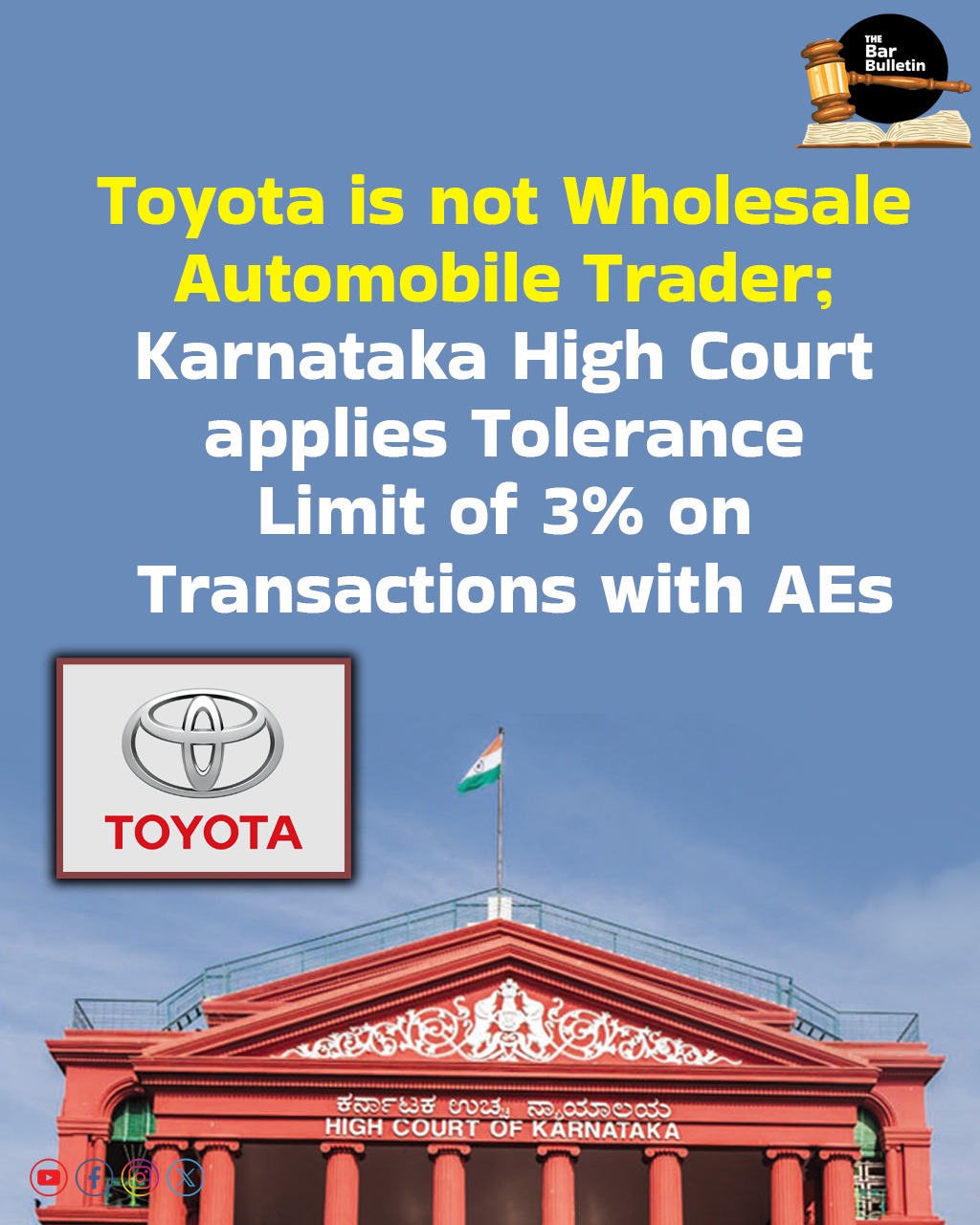While deciding upon the validity of the transfer pricing adjustment made in the hands of Toyota (an automobile manufacturer & trader), the Karnataka High Court (Bengaluru Bench) has held that there is no cavil that Toyota could not be classified as a wholesale trader, if it did not cumulatively comply with both the conditions as set out in the explanation under the Notification dated October 29, 2015. Since the Respondent failed to meet the conditions prescribed within said Notification, the tolerance band of plus/minus 3% would apply to the trading segment of the Respondent.
The Division Bench comprising the Chief Justice Vibhu Bakhru and Justice C.M. Joshi observed that when Toyota Tsusho (Respondent) had furnished data to establish that it did not comply with one of the conditions for being considered as a wholesale trader, and such claim was also accepted by the ITAT, being the last final fact-finding authority, then the controversy being factual, could not be decided by the writ court.
Briefly, in this case, the Respondent, engaged in trading in automobile components, processing of steel products, and providing logistic services, primarily catering to the automotive industry, had filed ITR declaring a loss of Rs. 10.86 crores. After considering the transfer pricing studies in respect of the trading segment and the manufacturing segment, where the Respondent had shown an operating profit/ operating revenue margin (PLI) of 0.94% and the weighted average net profit margin of comparable of 3.54%, the TPO found that the Respondent’s PLI was not within the tolerance range of plus/minus 1% and therefore, he concluded that the international transactions with AE’s were not at ALP. Accordingly, the TPO computed the transfer pricing adjustment at Rs. 25.23 crores in the trading segment and an adjustment of Rs. 6.02 crores in the manufacturing segment.
When the matter reached the ITAT, it was noted that the term ‘wholesale trader’ was defined in terms of the notification No.86/2015, which stipulated its meaning within the scope of an international transaction or a specified domestic transaction. Since the purchase cost of finished goods is 80% of the total costs pertaining to trading activities, and the average monthly closing inventory of goods is 10% or less of the sales pertaining to such trading activities, the ITAT opined that the Respondent could not be considered as a wholesale trader. However, despite observing the same, the ITAT remanded the matter for consideration afresh.
Appearances:
Advocate Sanmathi E.I., for the Appellant/ Revenue
NA, for the Respondent/ Taxpayer

